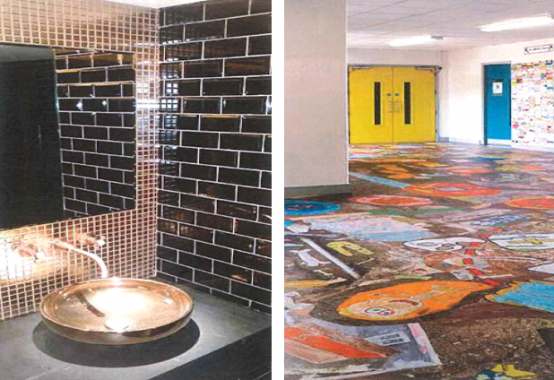FLOORING SOLUTIONS FOR THE CONSTRUCTION INDUSTRY

Founded in 1985, the Floor Form Group with offices in Armagh, Northern Ireland and Dunboyne, Republic of Ireland successfully supply flooring solutions to the construction industry throughout Ireland and originally the United Kingdom.
With a highly experienced management team, trained craftsmen and fitters, supported by technical and site experts, the Floor Form Group provide valuable product knowledge and practical solutions to their customers. Continually evolving and responding to changing economic conditions, they have more recently established international businesses in mainland Europe.
In 2012 the Floor Form Group started working in Germany. To ensure compliance with German regulations, the Floor Form Group contacted DE international Ireland for advice. As the construction site was in Germany, the work carried out was subject to German VAT and the German construction withholding tax (Bauabzugssteuer), which is comparable to the Irish Relevant Contract Tax (RCT).
The German construction withholding tax is 15% and therefore 20% lower than the highest RCT rate of 35% in Ireland. Like the Irish RCT, the German construction withholding tax has to be deducted when a subcontractor is paid and it then has to be paid to the German tax authorities. The German system was, however, more similar to the Irish system before the mandatory reporting on the Irish Revenue Online System and automatic penalties for late notifications of payments were introduced.
Besides these registrations, the German customs also have to be notified of the employees posted to Germany. The German customs use this information when inspecting construction sites to check if there are any employees on site which they weren’t notified of. At these inspections, usually the time sheets and payslips are checked to ensure compliance with German working time and wage regulation. The companies also have to show that social insurance contributions are paid. The German employer and employee contribution are between 19-20.55% and are therefore significantly higher than in Ireland.
The German social contributions usually have to be paid in Germany if the company has a so-called permanent establishment in Germany, which is defined in the double tax treaty between Germany and Ireland, or if the employees are more than 12 months in Germany. If the social insurance contributions are continued to be paid in Ireland the company has to hold a form called A1 for each employee. The form A1 is issued by the Local Department for Social and Family Affairs in Ireland.
Another focus of inspection on German construction sites is making sure that construction companies are registered with SOKA Bau. SOKA Bau is a holiday fund for workers in the construction industry. This fund was established so that posted workers receive the same holiday pay as German employees. The SOKA Bau contributions are 14.5% for the employee and the employer.
German PAYE has to be deducted if the posted workers are more than 183 days, or if the company has a permanent establishment in Germany. In order to deduct PAYE in Germany, the Irish company and the employees have to register themselves in Germany.
The Floor Form Group engaged DE international Ireland to register the company for VAT in Germany, to file the monthly VAT returns and to apply for the exemption of German construction withholding tax. DE international also assisted with notifying the German customs of the employees posted to Germany and with registering the company and the employees with SOKA Bau.
 DEinternational Ireland
DEinternational Ireland
Patrick Bamming
AITI Chartered Tax Adviser (CTA)/ DiplomKaufmann/TMITI with Irish Tax Institute
Tel: 086 047 8222
Email: Patrick.bamming@german-irish.ie
